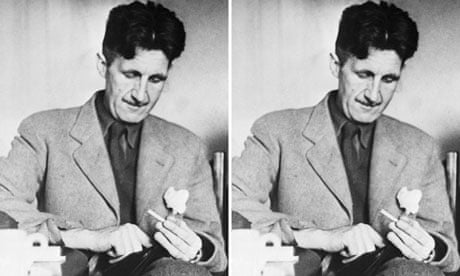This the time of the year when that peculiar character once known as "the common reader" has plenty of fiction to talk about. As well as the Booker shortlist, there's always the announcement of the latest Nobel laureate, who is more often than not a novelist. As I write, literary agents and publishers across the world will be closing deals for the translation of Mo Yan's work from Chinese.
Closer to home, and apropos Booker, a friend of mine, discussing the shortlist, dismissed Will Self with the interesting line that he had never bothered to pay much attention to Self's fiction because "he's really just a journalist".
This comment began to ring alarm bells in my mind, not least because it's the kind of line I've heard myself trot out in the past. There are a number of contemporary journalist-novelists whose fiction seems less interesting to me, if I'm honest, because their journalism is so highly visible in the press.
But will this do? I think not. To cite some obvious examples from the past, Dr Johnson was a brilliant literary journalist, and so was Joseph Addison. Charles Dickens began his career as a parliamentary shorthand reporter. PG Wodehouse was a journalist with the now defunct Globe newspaper until his mid-30s. Graham Greene's first job was as a sub-editor on the Times. George Orwell was reporting for the Observer while writing Animal Farm, and gathering his thoughts for 1984. And so on.
No doubt there are countless other examples I've neglected. In our own time, the writers who have also had good careers as journalists include David Hare, Martin Amis, AN Wilson, John Lanchester – and Will Self, of course. In the USA, Tom Wolfe was a rock-star journalist before he wrote The Bonfire of the Vanities.
Does it make sense to dismiss their fiction because they write for newspapers and magazines ? On reflection, of course not. But there it is: we somehow want our hacks to be hacks, and our storytellers to be… masters of the fiction universe.
What lies behind this prejudice, of course, is the idea that fiction (and poetry) is a higher calling. Journalism is hack writing (it doesn't have to be) and novelists dwell closer to the top of Mount Parnassus (well, occasionally).
In the UK, the overlap between novels and newspapers derives from the local economy. Here, where very few writers can make a living from their creative work, it's common for novelists, and especially poets, to have day jobs. Journalism can sometimes, though not always, fit that need, and help to pay the bills.
Actually, this is now more true than ever, and certainly truer than it was in recent memory. With the end of the long boom (1979-2009) in books and publishing that saw writers being rewarded on a hitherto unprecedented scale, the literary life has reverted to more a traditional modus operandi. The garret is back, at least metaphorically.
If Will Self wins the Booker prize, as he deserves to do, he'll be able to turn his back on journalism. Somehow, I think he'll find it hard to give it up.

Comments (…)
Sign in or create your Guardian account to join the discussion